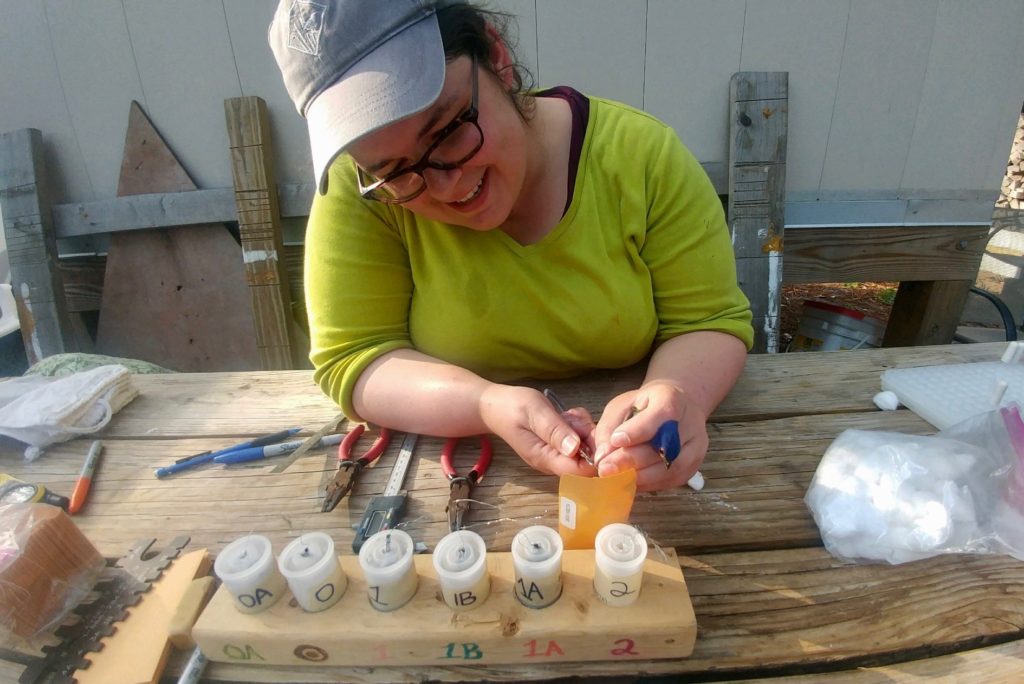
AOS provides many opportunities for undergraduate and graduate students in ornithology! As an AOS Student Member, you can:
- Apply for small grants (up to $2,500) to fund your research
- Attend the SAC Webinar Series and Student Research Grant (SRG) Seminar Series events (see Events below; see recordings of past events)
- Apply for travel funding to help you attend our annual meeting
- Compete for a Student Presentation Award at the annual meeting
- Participate in the many student-specific activities at the meeting, such as the annual student-mentor lunch
- Serve on the AOS Student Affairs Committee to make your voice heard in the Society
- Work with your advisor to review a paper for an AOS journal
If you have not previously been an AOS member, you may also be eligible to apply for a year of free membership via a Student Membership Award. The AOS is a diverse, global network of empowered professionals, working together to advance the scientific study and conservation of birds—join us today!
Events
Student Affairs Committee (SAC) Webinar Series
Bookmark this page for upcoming event announcements. Our professional development events are open to current AOS members. You can join or renew your membership in the AOS Member Portal.
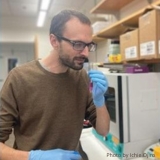
SAC Student Research Grant Seminar Series Host & Moderator
Robert Driver, research scholar, Duke University School of Medicine
UPCOMING EVENTS
SAC professional development events are open to current AOS members. You can join or renew your membership in the AOS Member Portal.
STUDENT RESEARCH GRANT (SRG) SEMINAR SERIES
The AOS Student Affairs Committee (SAC) hosts a weekly seminar series that offers recent AOS Student Research Grant recipients an opportunity to present their research in a seminar format. These seminars are open to all AOS members. We offer both a spring and a fall series. This series will pick up again in Spring of 2026.
See our Calendar Page for upcoming seminars.
PAST WEBINARS & SEMINARS
The genetic landscape of inbreeding depression and gene flow in a wild population of Florida Scrub-Jays
15 December 2025, Noon ET
Presenter: Faye Romero, Ph.D. candidate, University of Rochester; Werner and Hildegard Hesse Research Grant, 2024
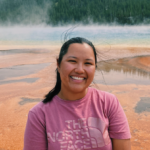
Inbreeding depression, or the reduced fitness of offspring of related parents, can cause the rapid decline and extinction of threatened populations in the wild. Gene flow can counteract drift and inbreeding by introducing genetic variation, but its effects depend on differences (demographic, ecological, and/or genetic) between source and recipient populations. As habitat fragmentation and population decline accelerate, it is critical that we understand how inbreeding and gene flow interact in nature to shape fitness and, ultimately, evolutionary outcomes. I will present preliminary results exploring the consequences of immigration to inbreeding (runs of homozygosity), levels of deleterious genetic load, and fitness in a pedigreed wild population of Florida Scrub-Jays (Aphelocoma coerulescens).
Conserving the Critically Endangered Great Green Macaw (Ara ambiguus) From First Word to First Flight: A study of geographic vocal variation, vocal development, and post-fledging movements
8 December 2025, Noon ET
Presenter: Alexander Allison, Master’s of Science graduate, New Mexico State University; AOS Mewaldt-King Research Grant, 2024
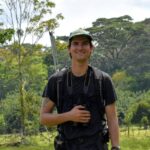
Parrots are among the most threatened birds, and behavioral research can inform conservation action, from improving captive breeding practices to supporting healthy wild populations. The critically endangered Great Green Macaw is one such parrot species that has faced severe decline from habitat loss and nest poaching. Working with the Macaw Recovery Network and Ara Manzanillo in Costa Rica, we investigated post-fledging movements in a wild population and characterized vocal development and vocal variation among wild, captive, and reintroduced populations, with the goal of informing habitat protection and reintroduction efforts.
Investigating Nascent Urbanization Effects on Physiology and Behaviors in Darwin’s Finches
1 December 2025, Noon ET
Presenter: Michelle Ross, Ph.D. student, Brock University; Betty and Herbert Carnes Research Grant, 2022, 2024
Recording will be available soon.
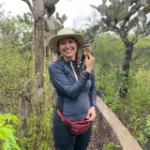
Globally, urbanization is rapidly encroaching on native habitat and presents a formidable threat to the continued survival of native fauna as they are forced to adapt to urban environments or go extinct. The Galápagos Islands have only relatively recently begun urban development which can help us better understand how animals adapt to nascent urbanization and this will ultimately help us better understand how animals become urban adapters. Assessing the differences between urban and non-urban Darwin’s finch physiology and behaviors across an urbanization gradient will help us understand adaptation to urbanization in ‘real time’ and this information will be critical in assisting conservation efforts focused on supporting animals in urban environments.
Who knows where the food is? Exploring intra- and interspecific information transmission in cowbirds
24 November 2025, Noon ET
Presenter: Charo López, Ph.D. candidate, Universidad de Buenos Aires; AOS Student Research Grant – Latin America, 2024
Recording will be available soon.
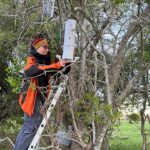
Individuals can obtain information about the location of feeding sites and other resources through their association with others. While relying solely on conspecifics may increase intraspecific competition, individuals may also use heterospecifics as sources of information. Over two field seasons, and using radio-frequency identification (RFID) technology, we investigated whether information about feeding sites is transmitted between conspecifics and/or heterospecifics in Molothrus bonariensis and M. rufoaxillaris.
Revealing migration strategies of high-latitude breeding myrtle warblers using multi-sensor geolocators and stable isotopes
17 November 2025, Noon ET
Presenter: Steph Szarmach, James Smithson Postdoctoral Fellow, Smithsonian Migratory Bird Center; AOS Student Research Grant, 2022
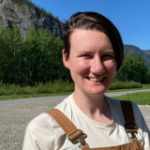
Multi-sensor geolocators that measure atmospheric pressure enable tracking of small songbirds at a fine scale not previously possible using traditional light-level geolocation. In this talk, I will present my work using multi-sensor geolocators alongside stable isotopes to characterize at a high resolution the migratory journeys of myrtle warblers (Setophaga coronata coronata) breeding at high latitudes of northwestern North America. I will discuss the unexpected results of this study in the context of previously proposed hypotheses regarding the factors shaping migration routes and will demonstrate the advantages of geolocation using barometric pressure.
Patterns of collective host selection in the Brown-headed Cowbird system
10 November 2025, Noon ET
Presenter: Juliana Villa, Ph.D. student, George Mason University; AOS Student Research Grant, 2022
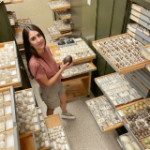
Unlike most bird species, Brown-headed Cowbirds fully rely on the nest and parental care of other bird species, also known as hosts. To avoid the cost of cowbird parasitism, hosts can rely on the appearance of the eggshells in the nest to detect and reject cowbird eggs. In this talk, I will show the patterns of host selection in the cowbird system and the possible factors involved in how host species influence the evolution of cowbird eggshells across its geographic distribution in North America. In addition, I will highlight the value of the under-utilized eggshell collections and perspectives on how eggshells sitting in museum drawers for decades can help answer long-standing questions in behavioral ecology and evolution.
Endocrine mechanisms behind an adaptive maternal effect: linking breeding site quality and offspring behavior
3 November 2025, Noon ET
Presenter: Haley Gee, M.Sc. student, University of Arizona; AOS Werner and Hildegard Hesse Research Grant, 2022
Recording will be available soon.
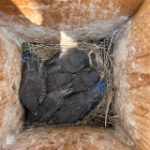
How do adaptive maternal effects influence offspring behavior? This project traces the effects of maternal environment on hormone deposition in eggs and fledgling stress hormone activation in Western Bluebirds (Sialia mexicana), to investigate the endocrine mechanisms behind adaptive intergenerational coordination.
Telomeres, mitochondrial copy number (mtDNAcn), organismal metabolic rate and growth rate—what is the connection in the developing House Sparrow (Passer domesticus)?
27 October 2025, Noon ET
Presenter: Holland Galante, Ph.D. candidate, North Dakota State University; AOS Werner and Hildegard Hesse Research Grant, 2022
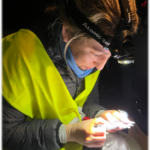
House sparrows nestlings undergo drastic physiological and morphological changes before leaving the nest during post-natal growth and development. This study investigates how metabolic rate during development impacts both telomere length and growth rate, along with if mitochondrial copy number (mtDNAcn) is an indicator of metabolic rate, is predictive of growth rate, as well as being repeatable between early and late stages of development. Advancing spring arrival timing is a major avenue through which birds can respond to climate change. However, carry-over effects of nonbreeding environmental conditions can also delay arrival and potentially prevent phenological advances. I will discuss how environmental conditions at multiple stages of the annual cycle interact to influence Prothonotary Warbler arrival timing and how this impacts vulnerability to climate change at the regional, population, and individual levels.
Evaluating the effects of wildfire smoke on the oxidative status of migrating birds
20 October 2025, Noon ET
Presenter: Megan Miller, graduate research assistant, Colorado State University-Pueblo; AOS Student Research Grant, 2024
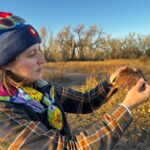
Wildfire smoke is an emerging threat to birds at the individual and population level. Limited studies associate smoke exposure with slower weight gain in House Wren nestlings, reduced banding capture rates, poor body condition among those captured birds, and large-scale avoidance behavior from migrating birds. I propose that exposure to poor air quality could influence the oxidative balance system through increasing reactive oxygen species production and decreasing antioxidant availability. I tested changes in oxidative status due to smoke exposure by collecting blood samples from migrating passerines in Southern Colorado during spring and fall migration.
Causes and consequences of social structure in Golden-crowned Sparrows
13 October 2025, Noon ET
Presenter: Annie Madsen, NSF Postdoctoral Fellow, UC San Diego; AOS Student Research Grant, 2022
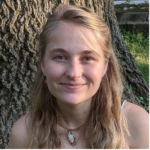
The pattern and organization of social relationships in animal populations shape life history, fitness, and evolution. Here, I address three fundamental questions about the dynamics of animal social systems: 1) what is the relationship between social and spatial fidelity? 2) how do population dynamics and social dynamics interact? and 3) how does social structure influence how behaviors spread through populations? Using a long-term study population of Golden-crowned Sparrows (Zonotrichia atricapilla), I leverage 12 years of social association data to investigate the causes and consequences of social structure.
The solar reflectance properties and structures of iridescence in Sturnidae and their potential biomimetic applications
6 October 2025, Noon ET
Presenter: Samantha Rutledge, Ph.D. candidate, Louisiana State University; AOS Student Research Grant, 2023
Recording will be available soon.
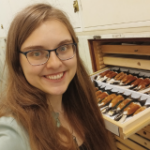
Iridescence is a form of color in birds produced by structural arrangements that generate different colors depending on the angle of incident and reflected light. Iridescent plumage patches can vary considerably in the arrangement of melanosomes, keratin, and air vacuoles, that in turn can vary in their reflectance profiles. Using Sturnidae as a model system, I employed spectrophotometry and microscopy to test the hypothesis that iridescent structures contribute to the solar reflectance (UV-VIS-NIR) of sturnid plumage, information that will be potentially applicable to new biomimetic and bio-inspired technologies.
From Fairways to Forests: Assessing the Avian Community Response to Habitat Restoration Techniques
29 September 2025, Noon ET
Presenter: Lauren Gingerella, Ph.D. student, University of Georgia; AOS Student Research Grant, 2024
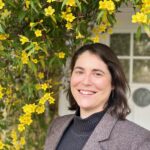
This talk explores how habitat restoration, through longleaf pine management and the rewilding of a former golf course, shapes bird communities in the Southeastern U.S. Lauren will share the goals, methods, and early observations from ongoing fieldwork that evaluates avian response to these conservation strategies. Her research aims to inform how restoration can be leveraged to support biodiversity on both natural and previously developed lands.
Exploring the complex genomic architecture of divergence in a North American backyard bird, the Northern House Wren
22 September 2025, Noon ET
Presenter: William Anderson, Ph.D. student, University of Colorado Boulder; AOS Student Research Grant, 2022
Recording will be available soon.
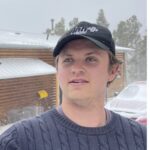
The Northern House Wren is a ubiquitous bird of the summer for the majority of people in North America. What many don’t understand, however, is the complex genomic architecture underlying population structure across its range. We have used a whole genome sequencing approach on 160 individual birds to document significant genomic differences, putatively identified as chromosomal inversions, on the Z chromosome, one of the avian sex chromosomes, that may be responsible for divergence in these well studied birds.
Tick Infestation Consequences for Ohio Appalachian Breeding Birds
8 September 2025, Noon ET
Presenter: Anna Rose, Master’s of Science graduate student, The Ohio State University, Werner and Hildegard Hesse Research Grant, 2024
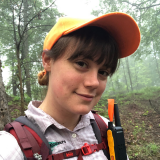
This project explores the impacts of tick infestation on nesting Appalachian breeding birds including both the parents and their chicks. 164 nests of Wood Thrush, Ovenbird, Worm-eating Warbler, Hooded Warbler, and Red-eyed Vireo were monitored with ticks found, removed, and identified by species and life stage. The project finds how tick infestation varies by nesting and foraging height as well as explores the relationship between tick infestation and nest success.
Full annual cycle drivers of phenology in the Prothonotary Warbler
25 August 2025, Noon ET
Presenter: Rebecca Ralston, Ph.D. researcher, University of Helsinki
Recording will be available soon.
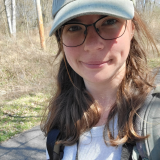
Advancing spring arrival timing is a major avenue through which birds can respond to climate change. However, carry-over effects of nonbreeding environmental conditions can also delay arrival and potentially prevent phenological advances. I will discuss how environmental conditions at multiple stages of the annual cycle interact to influence Prothonotary Warbler arrival timing and how this impacts vulnerability to climate change at the regional, population, and individual levels.
SRG Seminar: Origin and maintenance of the Andean bird fauna
5 May 2025
Presenter: Elkin Tenorio Moreno, Ph.D. candidate, City University of New York

Tropical mountains are among the most globally diverse regions. Understanding the origin and maintenance of montane biodiversity necessitates the study of patterns and processes at different temporal and spatial scales. In this talk, I will show: 1) how ecological factors such as morphological disparity and spatial segregation mediate the temporal accumulation of species richness, 2) the role of phenotypes in the origin of elevational replacements patterns, and 3) the contribution of neutral and adaptive variation in the genetic differentiation of bird populations along elevational gradients.
SRG Seminar: Mixed-species flocks in heterogenous landscapes: species richness, community dynamics, and species roles
28 April 2025
Presenter: Priyanka Hari Haran, Ph.D. candidate, University of Florida
Recording will be available soon.
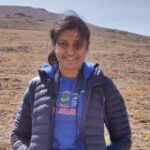
Tropical mixed-species flocks are well-studied community interaction networks, and vital for the survival of most insectivorous species. Outside forests, however, they must modify their behavior, and subsequently, their interactions with other species in order to cope with habitat disturbance. In heterogeneous habitats, both abiotic and biotic variables (such as the existing pool of species that can participate in flocks) can mediate flocking behavior.
SRG Seminar: Climatic influences on the ecology and evolution of a tropical lekking frugivore
21 April 2025
Presenter: Kristen Hobbs, Ph.D. candidate, Kansas State University
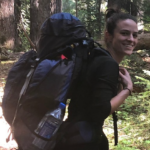
Hygric niche theory is a novel framework for understanding how tropical endotherms are influenced by precipitation, but to date, little empirical work tests its predictions. Kristen will explain three aspects of her Ph.D. work which focuses on 1) determining how rain and elevation interact to influence display behavior, 2) understanding the causes of rain-driven altitudinal migration behavior, and 3) elucidating how climate influences reproductive skew in 14 populations of a manakin species distributed throughout Costa Rica and Panama.
SRG Seminar: Urban Evolution in Arizonan Cardinals
14 April 2025
Presenter: Danny Jackson, Postdoctoral Research Associate, University of Arizona
Recording will be available soon.
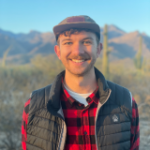
Urbanization has reshaped ecosystems, creating new selective pressures on wild animals. Using whole-genome sequences of northern cardinals and pyrrhuloxia from urban and rural Arizona, we tested for urban-related parallel evolution. Our findings highlight the impacts of urbanization on behavior, energetics, and immune function in native species.
SRG Seminar: Parental investment strategies and benefits of cooperative breeding in the Grayish Baywing (Agelaioides badius)
7 April 2025
Presenter: María de las Nieves Sabio, Doctoral fellow, University of Buenos Aires
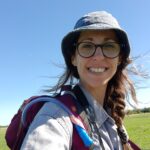
The talk will focus on cooperative breeding strategies in the Grayish Baywing (Agelaioides badius), examining how breeders and helpers contribute to brood care and how these contributions vary with helper presence. Using behavioral observations and RFID technology, I analyzed provisioning and vigilance behaviors, revealing differences between breeders and helpers.
SRG Seminar: Investigating the Evolutionary and Genetic Underpinnings of Dichromatic Plumage in Waterfowl (Anseriformes)
31 March 2025
Presenter: Emily Griffith, Ph.D. candidate, Drexel University
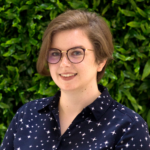
The study of plumage color evolution is a foundational aspect of ornithology. Differences in male and female plumage coloration known as sexual dichromatism is often attributed to sexual selection and female choice. However, dichromatic plumage in ducks potentially evolved in a much different way. This talk focuses on understanding the genes that control plumage color in male and female ducks while asking broader questions about how secondary-sexual characteristics have evolved through time.
SRG Seminar: Diet specialization in American Oystercatchers and effects on breeding success
24 March 2025
Presenter: Lyn Brown, Ph.D. candidate, Trent University
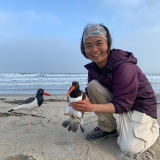
Here, I (Lyn Brown) describe the first case of diet specialization for American Oystercatchers breeding on two barrier islands in Virginia, USA. We used behavioral observations of foraging adults, provisioning chicks, GPS tracking technology, and nest monitoring to understand diet and its role in breeding productivity. I also discuss diet overlap between the sexes and novel feeding behaviors shared between American Oystercatchers and Whimbrels.
SRG Seminar: “The canary in the gold mine”: Assessing the impacts of artisanal and small-scale gold mining on bird communities in the Peruvian Amazon
17 March 2025
Presenter: Chris Sayers, Ph.D. Candidate, University of California Los Angeles
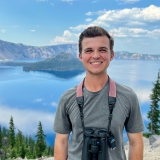
Skyrocketing gold prices are fueling an ongoing gold rush across the Amazon, but how does the gold mining industry affect biodiversity? To find out, we launched a field campaign that integrates mark-recapture, passive acoustic monitoring, and remote sensing techniques, and leverages birds as indicators of ecosystem function and contamination. We will review preliminary results on how bird communities respond to forest degradation, toxic mercury pollution, and other mining-induced disturbances in Madre de Dios, Peru.
SRG Seminar: Impacts of lead exposure on movements of California Condors
10 March 2025
Presenter: Varalika Jain, Ph.D. candidate, University of Vienna
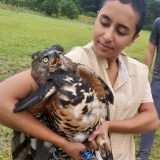
Lead contamination, an exclusively human-induced issue, poses a serious threat to the critically endangered California Condor (Gymnogyps californianus). Detecting lead exposures typically requires resource-intensive and invasive interventions. In this study, we explored a minimally invasive alternative, analyzing movement data from GPS-tagged condors.
SRG Seminar: The impact of wildfires on the vocal output of boreal birds communities in Alaska
3 March 2025
Presenter: Brendan A. Graham, Post-Doctoral Fellow, Institute of Arctic Biology
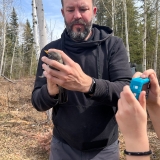
The primary goal of my research is to examine how climate change affects boreal bird species. Specifically, I will examine how air pollution from wildfires impacts the behavior of resident and migratory birds in Alaska. using passive acoustic monitoring. My study will provide greater insight into how daily rates of vocal output change in association with changes in air quality.
SRG Seminar: The influence of conspecific attraction on habitat choices of a migratory species at risk
24 February 2025
Presenter: Vianney Cupiche Herrera, Professor, Intercultural Mayan University of Quintana Roo (UIMQROO)
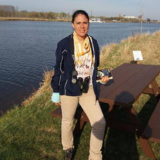
I will share one of my Ph.D. dissertation chapters on the conspecific attraction influence on the habitat choices of a migratory species at risk in its breeding grounds. I used playbacks simulating acoustic conspecific cues during the pre-breeding season to investigate the effect of these cues on the Canada Warbler (Cardellina canadensis) in Northwestern Ontario, Canada. My findings outline the importance of interspecific social interactions in assessing the distribution and habitat selection of the species. The findings suggest that conspecific attraction is a key factor in selecting breeding habitat territories of Canada Warbler in Northwestern Ontario.
SRG Seminar: Asymmetrical responses to multimodal signals in two Neotropical sister species of songbird
17 February 2025
Presenter: Wiliam Ku Peralta, Ph.D Candidate, National Polytechnic Institute (CIIDIR-OAXACA)
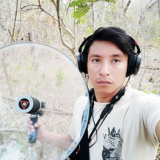
Animals use different signals to communicate, however how females and males use multimodal signals in conspecific recognition remains understudied. This research explores how two closely related Wren species discriminate between conspecific and heterospecific multimodal signals. The study sheds light on how multimodal signals are used conspecific recognition and their implications in maintaining reproductive isolation.
SRG Seminar: Interspecific eavesdropping by birds on a keystone mammal increases vigilance towards predators
10 February 2025
Presenter: Andrew Dreelin, Ph.D. candidate, Northern Illinois University
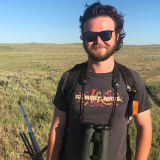
In this talk, Andrew Dreelin will share a chapter of his dissertation research on the keystone effects of prairie dogs on grassland birds. He and his colleagues used playback and a simulated predator to investigate potential eavesdropping between Long-billed Curlews (Numenius americanus) and Black-tailed Prairie Dogs (Cynomys ludovicianus), a social, colonial keystone species with a detailed alarm call network. Their findings highlight the under-explored connections between grassland birds and keystone species, with implications for grassland bird conservation.
SRG Seminar: Investigating the island syndrome in the St. Kilda Wren
3 February 2025
Presenter: Michał Jezierski, Leverhulme Early Career Research Fellow, University of Birmingham
Recording will be available soon.
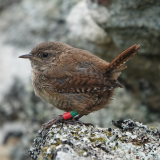
Island worldwide are host to a diverse array of species, yet they all show uncanny similarity in traits such as body size, pace of life or (we think) behaviour. This ‘island syndrome’ appears to be one of the most pervasive cases of convergent evolution, yet multiple biological traits have not been examined for it, and the drivers are still poorly understood. Here, I will describe a new study system that I am building, and show how an island endemic bird can help us understand the island syndrome.
SRG Seminar: Ultraviolet reflectance mediates parental feeding decisions between host and brood-parasitic nestlings
27 January 2025
Presenter: Kelly Miller, postdoctoral researcher, University of Memphis
Recording will be available soon.
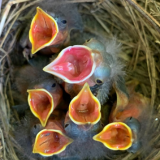
Raising a brood parasitic nestling can be costly for host parents, yet they often feed these unrelated young more than their own genetic offspring. Increased feeding toward brood-parasitic nestlings has been attributed to their larger size and greater begging intensity compared to host young, but differences in mouth coloration may also contribute to parental favoritism. By reducing the ultraviolet (UV) reflectance from the rictal flange (the enlarged, brightly colored tissue surrounding the bill) of host and brood-parasitic nestlings, I tested the hypothesis that this trait is used by parents when making within-brood investment decisions. UV coloration of the flange was positively condition dependent, and nestlings with reduced UV reflectance were fed less overall than nestlings with natural mouth coloration.
Webinar: The Postdoc Experience (view video at link)
Join us to hear from a panel of current and former postdocs about their experiences. Panelists will share insights on a range of topics including how to find a postdoc, how to decide if a postdoc is right for you, and what day-to-day life is like in the position.
Moderators
Kristen Rosamond, Ph.D. Candidate, University of Missouri-St. Louis
Stephanie Gaspar, M.S. Student, University of Central Florida
Presenters
Colleen Miller, Postdoctoral Fellow; Institute on the Environment at the University of Minnesota
Kirsty Gurney, Research Scientist, Science & Technology Branch, Environment and Climate Change Canada (ECCC) / Government of Canada and Department of Biology, University of Saskatchewan
Robert Driver, Research Scholar; Duke University School of Medicine
Brandon Hoenig, Emmes
Recorded 1/23/25
Webinar: Cultivating a Safe and Inclusive Fieldwork Environment (view video at link)
Many of us consider fieldwork one of our favorite parts of conducting research, but for some members of the ornithological community, going into the field presents higher safety risks due to prejudice and bias against individuals from minority identities. We all deserve to feel safe in the field, and as researchers, we can play a proactive role in reducing this burden on our at-risk colleagues. Learn about strategies to create and maintain a safe and inclusive environment in the field. Hear from a panel of four experts about fieldwork risks to be aware of, as well as best practices to address them, in our own field settings. Our panelists included Dayna De La Cruz (Hubbard Brook Ecosystem Study), Jerika Loren Heinze (The Fieldwork Initiative), Natasza Fontaine (Audubon Florida), and Viviana Ruiz Gutierrez (Cornell Lab of Ornithology; and board member, Field Inclusive, Inc.).
Additional resource provided by Kevin Holcomb and the U.S. Fish and Wildlife Service (USFWAS)
Recorded: 4/2/24
Webinar: Refining Your Resume for Ornithology Jobs Outside of Academia (view video at link)
Preparing a sparkling resume can be a daunting hurdle in the job search process given the varying skills prioritized by government, private sector, and non-profit organizations. We will be joined by a panel of five experts who will answer your questions about how to sharpen your resume for job applications. Our panelists will include Nick Bartok (Western Ecosystem Technologies), Kevin Holcomb (USFWS), Marnie Pepper (USDA Wildlife Services), Kelsey Rumley (World Bird Sanctuary), and Abby Sterling (Manomet).
Recorded 11/30/23
Webinar: Avian Chemosensation Webinar (view video at link)
Participants in the webinar learned about the diversity of olfactory and taste receptors in birds, as well as how they use the sense of smell to communicate! Robert Driver moderated a series of short talks from Julia Cramer (Max Planck Institute for Ornithology), Haoran Luo (Xiamen University), and Leanne Grieves (McMaster University) on the unique sensory adaptations of birds.
Recorded 9/20/23
Webinar: Manakin Mini Symposium (view video at link)
In this “Manakin Mini Symposium,” learn about manakins, a group of birds with elaborate and athletic courtship displays! Robert Driver moderated a series of short talks with manakin researchers, Camilo Alfonso, Lia Kajiki, and Kira Long, on different areas of manakin research, including physiology, evolution, and ecology, and showcased the work that stems from the collaborative National Science Foundation (NSF) Manakin Research Coordination Network. Whether you’re passionate about manakins or want to learn more about building a collaborative research network for another taxonomic group, we hope you’ll enjoy this first webinar of 2023!
Moderator: Robert Driver, Ph.D., East Carolina University; Postdoctoral Fellow, Duke University; Manakin Research Network
Presenters: Camilo Alfonso, Virginia Tech; Lia Kajiki, University of Brasilia; Kira Long, University of Illinois, Urbana-Champaign
Recorded 2/15/23
Webinar: Navigating Permits (view video at link)
To legally and ethically study birds in the lab or the field, we need permits! But the process of figuring out how to apply for these permits can be daunting. Five experts answered questions about how to navigate the permit process. Our panelists included Breda Zimkus (Museum of Comparative Zoology), Carla Cicero (Museum of Vertebrate Zoology), Christopher Milensky (Smithsonian National Museum of Natural History), John Bates (Field Museum), and Laura Bies (Ornithological Council). Our panelists have extensive experience with U.S. and international permits needed for field work, sample collection, and sample transportation. Their expertise has relevance for anyone doing physical research on birds, not only those affiliated with natural history museums!
Recorded 10/21/22
Webinar: Careers Beyond Academia (view video at link)
Four panelists from a variety of careers outside of academia engaged in a panel discussion followed by breakout rooms to facilitate conversations between attendees and panelists in smaller group settings. This webinar was a complement to the workshop that took place at this year’s in-person AOS & BC 2022 meeting in Puerto Rico, “Fledging the Nest: Non-academic Research and Conservation Careers for Students.” If you were unable to attend this year’s in-person meeting, this was an opportunity to learn about this topic in a virtual setting and benefit from the knowledge of AOS members with careers outside of academia!
Recorded 9/27/22
Webinar: Design Principles for Making Publication-Ready Figures (view video at link)
Dr. Stepfanie Aguillon, Stanford Science Fellow and winner of the 2022 James G. Cooper Early Professional Award, led this workshop. From Stepfanie: “Figures are arguably the most important part of any manuscript or presentation, so it is vital that your audience can easily understand the messages you’re trying to convey. This workshop focused on the basic design principles that will help you communicate as clearly, accurately, and efficiently as possible in your figures.” Learn more about making effective figures – just in time for planning your presentation for the AOS & BC 2022 Conference in June!
Recorded 4/13/22
Webinar: How to Review Manuscripts for AOS Journals (view video at link)
This webinar focused on strategies for reviewing manuscripts for the AOS journals, Ornithology and Ornithological Applications. Our event featured a panel discussion with the current journal editors, who offered advice on how students can become reviewers for AOS’s ornithological journals and how to review manuscripts in a critical but helpful manner for the authors.
Recorded 1/23/22

Career Resources
- Become a graduate student reviewer for AOS journals
- AAAS Careers in STEM
- Guide to Graduate Studies in Ornithology in North America (Wilson Ornithological Society)
- Careers in the Biological Sciences (AIBS)
- FindAPhD
- National Academies of Sciences, Engineering, & Medicine Career Guides
- Scholarly Kitchen Blog Post: Navigating Your Career in Publishing: Introducing the SSP Professional Skills Map
Student Funding Opportunities
- Ornithology Exchange Grants & Awards Database
- American Museum of Natural History Ornithology Grants
- Animal Behavior Society Student Research Grants
- Ecological Society of America Funding and Grants
- International Foundation for Science Research Grants
- Miller Research Fellowships
- National Geographic Grant Opportunities
- National Science Foundation Graduate Research Fellowship Program
- Sigma Xi Grants-in-Aid of Research
- Smithsonian Institution Fellowship Program
- Society for the Study of Evolution Awards & Prizes
Jobs and Internships
- Ornithology Exchange Job Board
- AAAS Science Careers
- “Where do you look for academic jobs in ecology?”
- Ecological Society of America Job Board
- Environmental Career Opportunities
- Society for Conservation Biology Jobs Board
- Society for the Study of Evolution Career Opportunities
- Texas A & M Department of Wildlife and Fisheries Sciences Job Board
- The Wildlife Society Career Center
- USAJOBS
- Conservation Job Board
- WorkCabin Canada’s Conservation Jobs Board